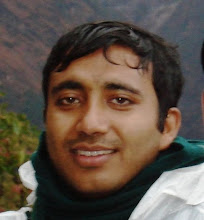In his famous book titled "fortune at the bottom of pyramid", C K Prahlad enumerates with help of case studies how fortune can be made by serving people at the bottom of economic and social pyramid (BOP). He pools in examples from developing countries across the world to show case the strength of business innovations in making seemingly unattractive consumption group of poor yield unthinkably high profit. To quote him, "The problems at BOP are not new. However they represent a new challenge….. the solutions must be affordable, easy to use for low literacy, and available."
Innovations cold be in terms of processes, procedures or product (and its delivery). He has included more than two dozen examples from India. One of the most successful such innovations is Aravind Eye Care system, which provides gift of vision to more than 12 lakh patients every year at costs 100 times less than developed world, and does all of with a profit which even the best hospitals in India do not make.
Aravind Eye care system, which was established by Dr. G Venkataswamy (fondly called Dr. V) in 1976 at Madurai (TN, India), treats more than 13 Lakh patients and conducts more than 2 Lakh surgeries every year through its series of 3 hospitals and around 1500 rural camps. Its standard of medical care certified as top quality by independent bodies like UK Health survey puts it in the league of best in world (some say it is best in world). It is speedy (minimum 10000 patients per day); efficient (each doctor does around 25 surgeries in half day), and dirt cheap (Cost wise it is 1/100 th of a similar surgery in USA). To top it all, it is hugely profitable (Rs. 21 Crores net profit in 2005 achieved with no grant money involved).
Productivity per Medical Officer of Aravind Eye Care system is at least six times more than other doctors working with Public or private clinics/ hospitals in India, and perhaps highest in the world. There are colleges and research centers of the institute doing cutting-edge research in ophthalmology. All this achieved while serving with a simple mission – of eradicating needless blindness, first in the state of Tamilnadu and then in India.
The book tells us two main factors lying behind success of the system are– its inspirational leadership and ability to constantly innovate. Dr. V, a Padmashree awardee, has been a constant source of inspiration for all staff. Innovation at Arvind Eye Care has come in area of processes (screening off at camps, and parallel operations by single doctor), product delivery (quality paramedics trained inhouse, low cost but scientifically designed movement system for patients cutting the time and space requirements), and quality (improvements in higher end products and medical procedures, reducing aftermaths).
In another case study on leadership published by ICFAI, leadership style for business and social ventures has been put into three categories – Charismatic, Hands on, and Inspirational. The case writer had put Dr. V under the last category of leaders, and narrated an anecdote to explain his point.
Dr. V worked like there won't be any tomorrow. He had a senior member called Dr. Bala responsible for all rural camps. One day, Dr. Bala came back suffering from fever and infection from a far-off rural camp. It was morning time when surgeries are started. No doctor can afford to take leave from this responsibility at Arvind Eye Care. Dr. V, as was usual at the day-start at 7 AM, was taking round of hospital. He saw Dr. Bala, who was supposed to be getting ready for surgery, lying on a bed herself. Dr. V asked what happened to her. She answered she caught infection and had fever at the rural camp and was taking rest. Dr. V said, "I have fever of 104° F. How much is yours?" She got up and performed that day so many successful operations that she made a world-record. She has fever of 102° F. Dr. V was aged around 80 years then.
BoP captures few other similar stories. These anecdotes have woven a culture of purpose, ethics, respect, and excellence at the hospital. Attitude to serve is given highest weightage and no deviation to the rule "speak with patients in soft tone" is tolerated. Girls from big joint families and specially those who have had the experience of taking care of their younger siblings or children of relatives are considered better candidates for nursing jobs. These, and many other such native wisdom has helped the hospital to grow organically, remain profitable and excel in its continuous delivery of quality medical care to all. Around 40% of its patients are given free treatment, but the hospital doesn't do it as charity. It earns profit on rest 60% and cross-subsidizes the BoP. It is the world's largest, most respected, and most productive system of eye care that boasts of world class outcomes. But what is the most satisfying of all this to its founders is the fact that the clientele it serves comes from Bottom of the Pyramid. The fortune, not only monetarily but in terms of social capital as well, has been successfully incubated and delivered under this system, concludes C K Prahlad.
So I'm Writing a Thing Part 4- The Library
2 years ago
